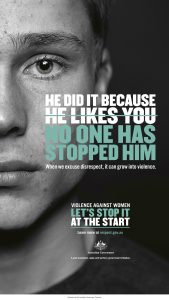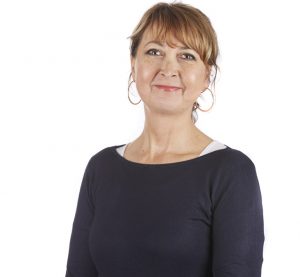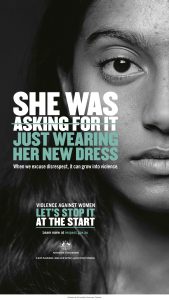And scroll down for a full list of nation-wide resources. Feature image: by Jordan Tarrant.
Hello my lovely community of most excellent humans,
As some of you are aware, last week I put the call-out to anyone who could help me do something about the current domestic violence epidemic gripping our country. I received thousands of responses. Some were from outreach programs, some were from survivors of domestic violence, and some were from people who felt as helpless as I do about the situation.
Domestic violence is a complicated, big, raw and nuanced issue. It’s not something that can be solved easily, quickly or simply. It requires a huge cultural shift in behaviour and attitude, and that kind of thing takes years. I think that’s why so many of us feel overwhelmed about how to possibly help the situation, because there is no short term solution. However after spending the week researching and talking to experts, I know that there are tangible ways to help the people affected by domestic violence in this country.
I’m going to give you the three I think will be most effective, so we can start making a difference right now.
- One: Contact your local MP and let her or him know that you’re a voter and this is an issue you care about.
- Two: Have conversations with your friends and family about subtle behaviours that disrespect women.
- Three: Get involved in the movement – be it marching, donating or raising awareness.

From Respect.gov.au, a brilliant resource.
One of the main things I’ve taken away from this week is that we need to involve men in this conversation. It’s not about men vs women, I’ve witnessed various factions from each side blaming the other for too long and what I know is, that’s not working. We need to find a middle road to walk down, no sides, just all of us coming together, to do what we can to prevent women and children dying. The simple fact is men listen to other men, and if they’re in a social setting and a mate makes a disrespectful comment about a female patron or waitress and they pick him up on it gently, in the moment – that will have an impact. That is changing the behaviour at it’s genesis, and that is the type of conversations we need to be having with all the people in our life. If you’re sitting there thinking “how the hell do I even start that conversation with my kids, family and friends?” I’ve got you: click here for a fantastic resource that answers that very question.
One of the experts I spoke to was Fiona McCormack (pictured), the CEO of Domestic Violence Victoria. Fiona has spent most of her working life focussing on issues that affect women. She was generous and helpful during our chat and I walked away from it feeling a renewed sense of understanding and purpose. We spoke for quite a while, and some of the things she said really stuck with me, so I want to give them to you straight up.

Fiona McCormack, CEO of Domestic Violence Victoria
Fiona, what is something tangible we can do?
“Send an email or a letter or call up your local politician, no matter who you’re voting for, and just let them know: ‘this is what I care about as a voter’. That’s how things get up, if enough people call out about an issue. If you’re saying to your political party ‘this should not be a fringe issue, this is a core value. You need evidence-based approach, funding, and policies’, they will listen to your needs because they want your vote.
It’s important that Government follows an evidence-based approach on why violence is happening in the first place, and how they can respond better. For example, the Royal Commission into Family Violence. The Government committed to all 227 recommendations.
We didn’t change the rates of smoking overnight, it took an evidence-based and long-term plan, and concerted effort. Domestic violence is a deeply entrenched issue culturally so it’s not going to be addressed overnight, but we do need Government to take approach.”

Respect.gov.au
How can we involve men in the solution?
“Importantly: talk to them. The men in your life. This is a time we really need men to step-up and challenge one another. Men are not the villains, they are the key to turning this around. They influence each other’s attitudes. They are part of the solution.
What we know about the types of men who are likely to perpetrate is they have certain attitudes towards women and towards violence. Attitudes that women are less than men, that they can be joked about and talked about in a hurtful or sexist way – it’s really critical. There’s a link between racism and race-related violence, and homophobia and homosexual-related violence, and so on. So attitudes about men vs women can play such an important role. It’s awkward in a social situation to call it out, but it’s important.
Talking about those attitudes with friends – those certain awkward social circumstances, how they handle it – that’s a really powerful thing.”
This is about gender, but not in the way we think it is…
“As a mother of two sons, the facts about the gendered nature of violence against women really confronted me. What does it mean? Is there something inherently evil in men? Is this biological? Is there nothing we can do about it? But the more I learned about it, the more I learned about gender itself. We tend to use gender to describe the physiological differences between men and women, but academically speaking, it relates to the way in which the social norms surround masculinity and femininity.
But when masculinity is tied up with the hatred of women, that’s when it’s problematic. When we’ve got concepts of masculinity where they resolve disagreements through anger and fighting, that’s where it’s problematic. When a man gets punched outside of a nightclub, we talk about alcohol, we talk about venues, and gangs, and curfews. We don’t talk about gender. And the ways in which our culture means that masculinity needs to be proved over and over again. How much you drink, how much you fight, how strong you are. That’s the element of masculinity that we have to shed. And also the stuff around femininity – where they are the main carer of the kids, where they don’t have any value unless they’re sexually available… This issue is not about a critiscim of men – it’s about changing our culture. These things can be so much a part of our culture, it’s like we’re fish but we don’t see the water.”
Isn’t she brilliant? So, just like Fiona said, make sure you contact your local MP with a simple email stating that this is something you care about. It’s easy. I know it sounds exhausting and time-consuming, but it’s something physical you can do RIGHT NOW and it will help. This link may help you to find your local MP, but if not, do a quick google. Write a short, passionate email about how pissed off and helpless you feel because 68 women and 19 children have been killed so far this year. Then tell your MP that you want this to be a core issue, and you want them to have an evidence-based, funded plan on how to fix it.
It will take you five minutes. Do it for the women in your life.
Finally, what am I doing? I want you to know that I’m getting my hands dirty, that this isn’t just something I’m going to write about once and pat myself on the back about, and walk away. I’m invested, I’m passionate and I want to energise you all to feel the same way. I’m going to be waddling (I’ll be 30 weeks preggo) in the “Walk against Family Violence” march happening in Melbourne on November 23rd which is being run by Safe steps. I’m teaming up with the Dangerous Female girls to fundraise and I’m looking into how I can help various shelters (which is something that needs to be confidential for safety reasons). It is my sincerest hope that you leave this blog committed to taking action. I hope you feel as though I’ve provided you with the tools to do so, as that was my number one goal: to empower you guys to help women and children affected by domestic violence.
RESOURCE LIST.
If you are in a domestic violence situation, or if you fear for a friend or loved one, these are the important steps:
First and foremost, call 000 if you are ever in immediate danger.
Secondly, talk to someone you trust. A friend, a family member, an outside party. Talk to counsellors and professionals and hotlines.
Thirdly, know your options. Legally, financially, and logistically. As told to us by Elena Rosenman, Executive Director of the Women’s Legal centre in Canberra (who provide assistance to women experiencing domestic violence and need help with their legal problems); “One of the most effective tactics abusive partners use is to isolate women from their support networks, their friends or families, and suggest that people can’t help and or won’t help. If you are experiencing domestic violence, try and talk to people you trust and services that can give you information about your legal options, finances, housing, and counselling. The more information and support you have, the more options you might be able to see.”
Here is a list of resources for anyone needing help. Also, if you’d like to help in another way, many of these resources are drastically underfunded – we encourage you to donate directly to their services if you can.
Hotlines:
1800 RESPECT
National sexual assault, domestic and family violence counselling service.
1800 737 732
https://www.1800respect.org.au
Lifeline
Will put you in contact with your States crisis service.
13 11 14
Kids Help Line
This is a great service for kids to talk to counsellors. The trained professionals at Kids Help Line will talk to anyone between the ages of 5 – 25 years old.
1800 551 800
National Domestic Violence Hotline
Offers online chat, video phone, instant messenger and TTY for the Deaf community.
www.thehotline.org/help/deaf-services/
For our future Men:
Respect.gov.au is a great resource for conversations about respect.
For men and boys who are affected by DV there are people you can talk to:
Men’s Line Australia
1300 78 99 78
DV Resources & Services:
Australia Capital Territory
Women’s Legal Centre ACT
(02) 6257 4377
Women’s Legal Centre also have the Mulleun Mura Aboriginal and Torres Strait Islander Women’s Access to Justice Program. (Aboriginal woman-led service offering culturally appropriate support with justice issues). Call the Women’s Legal Centre on (02) 6257 4499 to speak with the Mulleun Mura team.
Toora Woman
Counselling: (02) 6122 7070 (or www.toora.org.au/contacts.html)
Domestic Violence Crisis Service
(02) 6280 0900
Onelink
1800 176 468
New South Wales
WDVCAS NSW
1800 938 227
DVNSW
(02) 9698 9777
Womens’ Legal Service NSW
1800 801 501
Northern Territory
Dawn House
(08) 8945 1388
Ruby Gaea Darwin Centre
(08) 8945 0155
Top End Women’s Legal Services
1800 234 441
Queensland
DV Connect Crisis Support Qld
1800 811 811
Domestic Violence Prevention Centre
http://www.domesticviolence.com.au/
Women’s Legal Service QLD
(07) 3392 0644
South Australia
Junction Australia
(08) 8203 5700
https://junctionaustralia.org.au
WSSSA (Woman’s Safety Services)
1800 800 098
http://womenssafetyservices.com.au
Women’s Legal Service SA
(08) 8231 8929
Tasmania
SHE
(03) 6278 8292
Huon Domestic Violence Service
03 6264 2222
http://huondomesticviolence.com.au
Women’s Legal Service Tasmania
(03) 6231 9466
Victoria
Safe Steps
1800 015 188
EDVOS
(03) 9259 4200
Women’s Legal Service Victoria
(03) 8622 0600
https://www.womenslegal.org.au/
In Touch
1800 755 988
Western Australia
Women’s Council for Domestic and Family Violence Services
(08) 9420 7264
http://www.womenscouncil.com.au
Women’s health & family services
1800 998 399
Women’s Law Centre
1800 625 122
Thanks again to Fiona McCormack from Domestic Violence Victoria and Bethany Hender and Elena Rosenman from the Women’s Legal Centre in Canberra for their guidance in creating this article and resource list. Wonderful women doing great work.
Share this with anyone who might need it, and look after each other.
Em X

